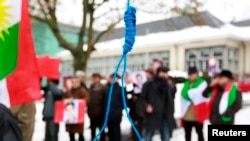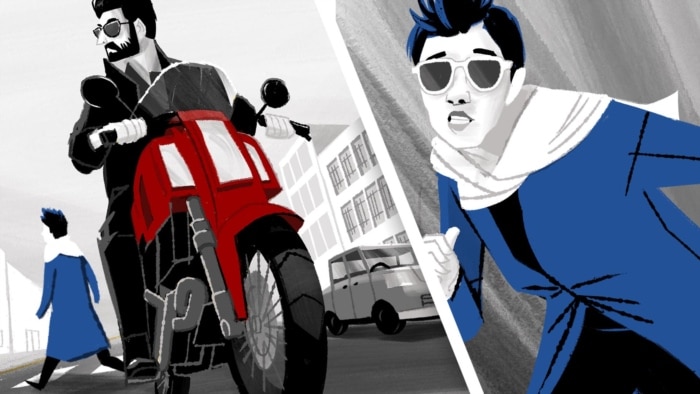An international rights group said it had learned that Iran quietly executed a teenager for a crime he committed when he was 14 years old.
Amnesty International's London-based Iran researcher Raha Bahreini told VOA Persian her group heard from local sources that Abolfazl Chezani Sharahi was executed Wednesday at dawn in Qom prison, south of Tehran.
Sharahi had been sentenced to death in September 2014 for fatally stabbing a young man during a fight in December 2013, when Sharahi was 14. Bahreini said Iranian authorities transferred him to solitary confinement on Tuesday in preparation for his execution — the fifth such transfer since 2014.
"Sadly, this appalling development was not brought to the attention of domestic and international human rights groups until the early hours of Wednesday, and this allowed the judicial authorities to carry out his unlawful execution quietly and without attracting the public outcries that generally emerge when a juvenile offender is scheduled for execution in the country," Bahreini said.
There was no immediate confirmation of Sharahi's execution from Iranian state media.
Bahreini said Amnesty was outraged that Iranian authorities had not taken systematic steps to end what she called the "horrendous practice of executing juvenile offenders."
The Convention on the Rights of the Child, which Iran ratified in 1993, prohibits the use of the death penalty, also known as capital punishment, for crimes committed by individuals younger than 18 years old.
Under Iran's penal code, the death penalty can be handed down to boys as young as 14 years and 6 months, or the equivalent of 15 lunar years — the age of adult criminal responsibility for males in Iran.
In February, U.N. High Commissioner for Human Rights Zeid Ra'ad Al Hussein issued a statement criticizing Iran for violating what he called the "absolute prohibition" on using the death penalty against juvenile offenders, saying it committed such violations "far more often than any other state."
This report was produced in collaboration with VOA's Persian service.

